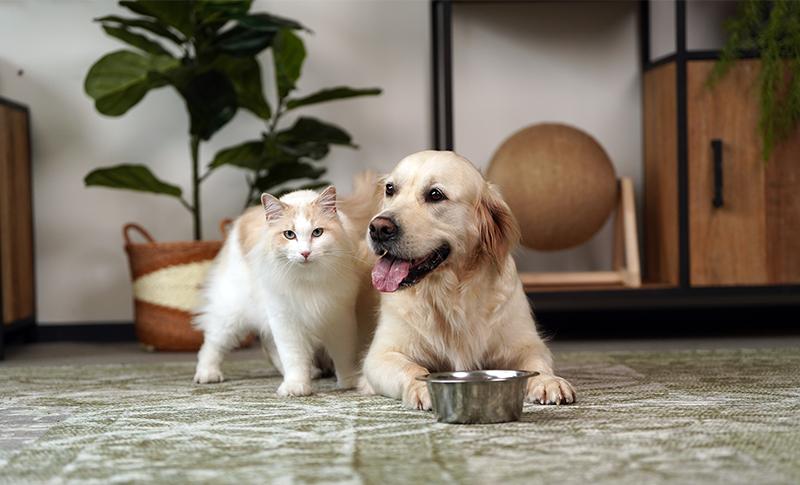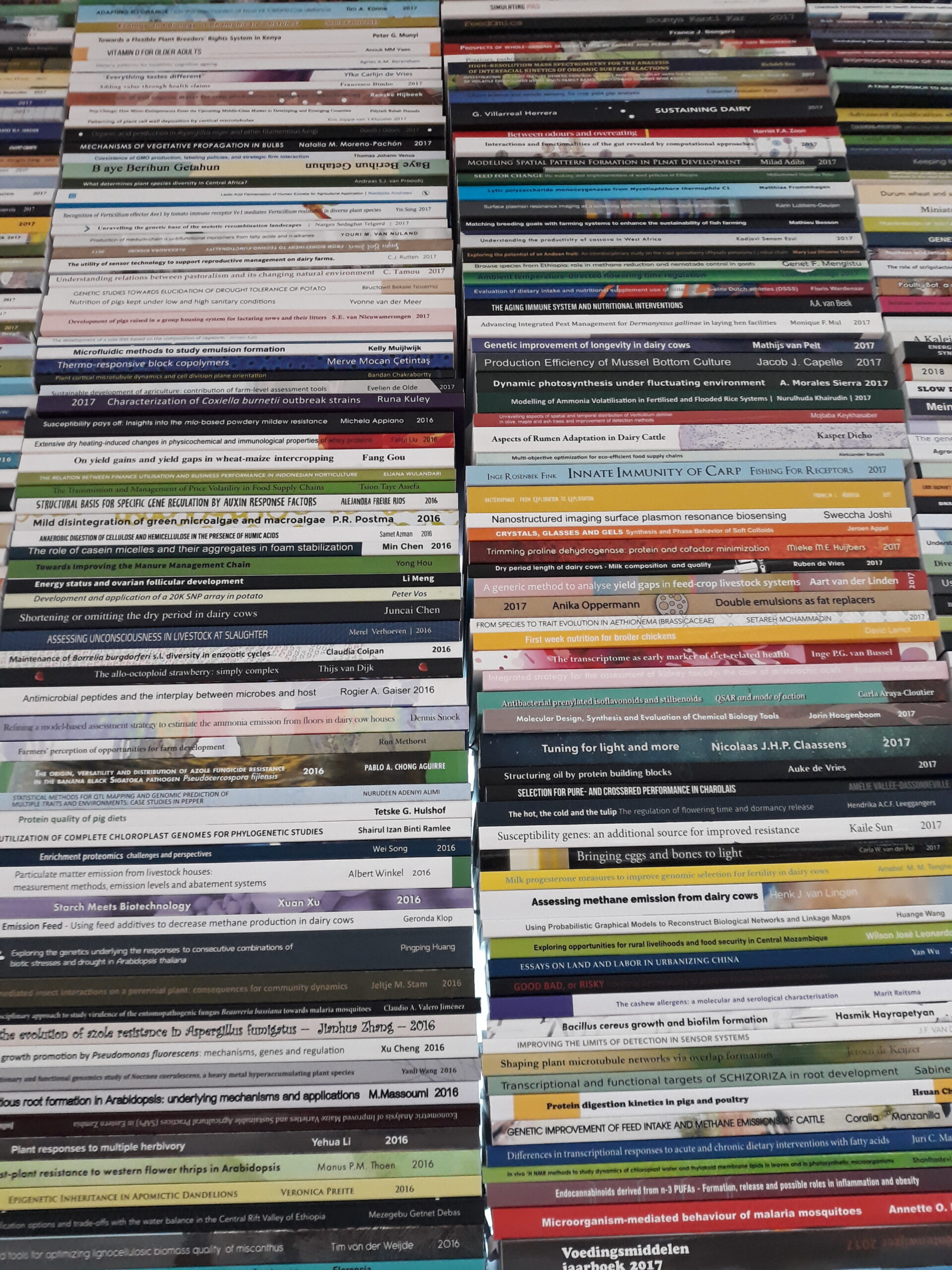Pet-food producers usually test their products for flavour and digestibility in research facilities, but pet owners can also test them at home, shows research by alumnus Evelien Bos. She already offers home tests through her startup Pet Panel, for which she has been nominated for a Wageningen Entrepreneurship Grant.
To determine the quality of their end products, pet food producers test them for tastiness and digestibility, usually on cats and dogs in testing facilities. That has its advantages: the conditions are standardized and controlled by the researchers who carry out the tests. But how closely does it resemble the real world for dogs, cats and their owners at home? For her PhD research, Evelien Bos developed a protocol for testing the tastiness and digestibility of pet food in the home. This can provide producers with important information about how the foods do in practice, and it offers an alternative to keeping animals in testing facilities. Bos: ‘My passion is to improve animal welfare and to bridge the gap between science and the real world’
I don’t want my research results to end up only on bookshelves
Bos developed guidelines for conducting a reliable home test. It proved possible to do the tests quickly. ‘Pets get used to the new pet food within a couple of days, and they can soon make clear which pet food they prefer.’ And that’s important, because however healthy and nutritious a pet food is, if the pet turns its nose up at it, that’s irrelevant. ‘Tastes vary, it’s quite simple.’
Poop
Owners receive weighed portions of the pet food in the post, and the first test is an acceptance test: does the animal want to eat the food? In another test, the animal gets to choose between two kinds of food. The owner retains the uneaten food and keeps a diary about the pet’s behaviour. ‘Pet owners know their pets inside out, and can evaluate their behaviour themselves,’ says Bos. ‘What is more, they are the customer in the end, so their opinion is very relevant to a producer.’
Bos also asks owners to take samples of poop from their pets, because that provides valuable information. ‘We can determine the nutritional value, meaning how many of the nutrients actually get digested and absorbed. That varies quite a bit between animals because factors such as sex, age, body weight and activity levels can affect it. With the home tests, animals of all breeds and sizes can take part, and so we can gather information about the whole pet population. Or we can create testing panels with a representative group of animals which a particular product is made for.’
Startup
Bos got her PhD last November and started her company Pet Panel early this year, together with two partners. Pet-food producers can request tests from them. ‘I already got lots of requests for home tests from pet-food producers when I was doing my PhD. I couldn’t provide them then, but it did make me think. I have the expertise and the network. And I don’t want my research results to end up only on bookshelves.’
In the course of my study I visited a lot of people at home, and it was really worthwhile to do the research with them.’
Bos has been nominated for the Wageningen Entrepreneurship Grant, awarded by University Fund Wageningen every year to young entrepreneurs who make a social impact. She will be in the finals on 22 May. ‘I’m really looking forward to it and of course I hope I win.’
She would use the prize money of 25,000 euros to upscale Pet Panel. ‘Normally, when you start a business, you start from scratch but because I was already working on it during my PhD research, the test applications are coming in thick and fast. That’s terrific, but it’s a challenge as well. Because we need a lot more test panel members.’
And as if she wasn’t busy enough already, Bos is starting a postdoctoral study soon. She wants to develop an indigestible marker with which she can study digestibility even better in uncontrolled conditions like the home situation. ‘My idea is to spend about 70 per cent of my time on Pet Panel and about 30 per cent on my postdoc.’
For more information or to join a test panel, see: www.petpanel.nl
Companies join forces
Evelien Bos’s PhD research was partly financed by nine companies in the animal feed industry. All the companies donated a sum to University Fund Wageningen, amounting to a total of about 325,000 euros. Bos: ‘It is quite unique for all these companies, who are normally each other’s competitors, to give jointly. That shows how important this is to the whole industry.’

 Pet panel testers Kerel (left) and Pippa. Photo Arjan Ligtermoet
Pet panel testers Kerel (left) and Pippa. Photo Arjan Ligtermoet 